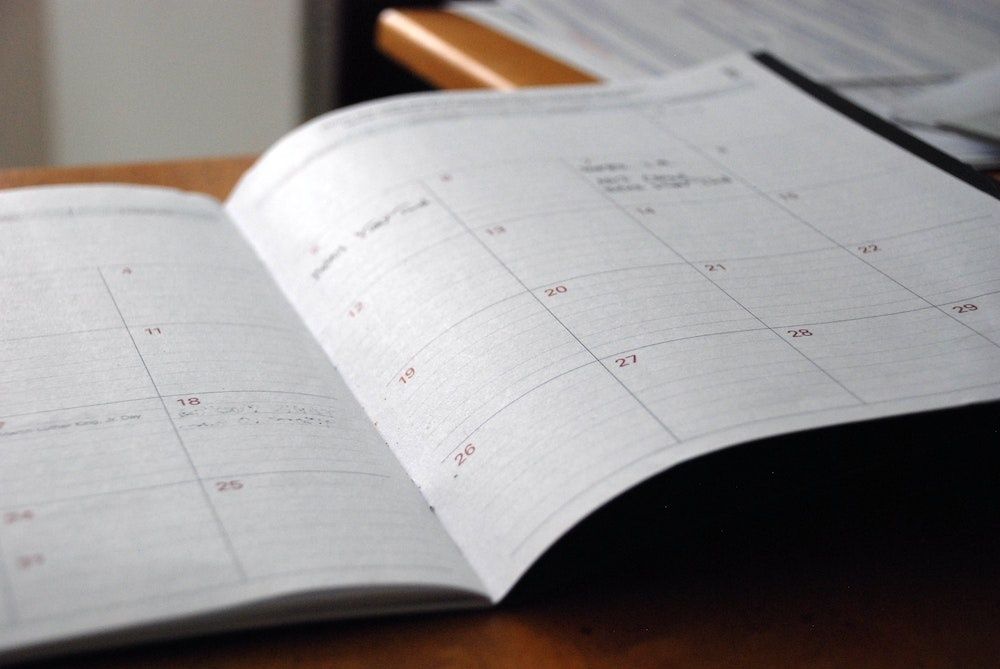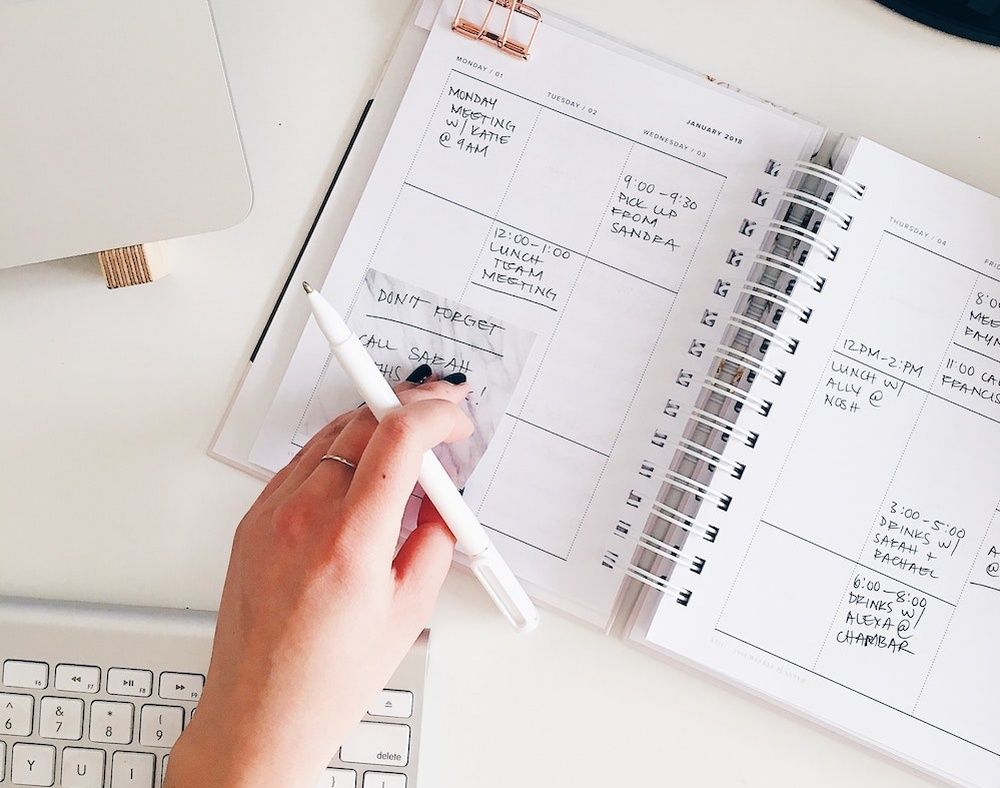Top 15 Revision Techniques
Avg. Read Time: 7m 41s
Looking to make the most out of your revision sessions? We’ve put together our top 15 revision techniques for students so you can be on top form for your exams and studies. Implement some of our simple, but effective revision strategies so you can achieve the exam success you’ve been working so hard towards!
After a hard day’s work revising for your exams, why not take a load off and relax in our luxurious student accommodation? Every single one of our rooms has all bills included, so that’s one less thing to stress over during the exam season.
So, whether you need some last minute revision tips or methods to help you excel, here are 15 hot revision techniques for exam success.

1. Timetable
Start as you mean to go on. Plan a revision timetable. They’re one of the best revision tips for exams as they ensure you cover all the subjects and topics likely to pop up on the day. It’s a good idea to revise the areas you find most difficult first – get them out of the way and build your confidence in the subject. Be disciplined with yourself and set aside time each day to revise. Another good revision tip is to start early, if that works for you. Research shows you are more likely to complete all your planned work if you start earlier in the day.
Top Tip: Create a digital revision timetable on Google Calendars to always have it by your side. We nearly always have our phones nearby, so it’s a neat trick for keeping on top of your studies.
2. Take regular breaks
Make sure that you’re taking regular breaks and factor these into your timetable. Studies show taking regular breaks from your work may boost your mood, reduce burnout and improve your overall performance. Set a timer and work for around 30 minutes to an hour, then take a nice relaxing 20 minute break.
Top Tip: Use your breaks to do something positive like going for a walk, stretching or running an errand. This is a great way to keep your mind refreshed and ready to learn.
3. Plan something fun
Try to find the right balance between study and leisure. Plan your days as though you’re going to school or work and have something fun at the end of the day to look forward to. This will keep you focused without placing too much emphasis on exams all day long.
Top Tip: Go out with friends after a productive day of revision or treat yourself to something sweet.
4. Get organised
To get great marks across the board you need to know where your strengths and weaknesses lie. Make a list of your topics and subjects in order of how confident you are at each one. This will give you a great idea of where you need to focus your studies. Once you’ve prioritised time for all of your worst subjects, you can then work the rest of your revision into the gaps. This will give you a nice balance across all of your studies.
Top Tip: Go over the topics you’re taught in class shortly after learning. If it sticks in your mind early on, you’re more likely to remember it when it comes to exam time.
5. Find a dedicated work space
Find somewhere quiet and distraction free where you can focus on your work. Try to avoid working in your bedroom and especially your bed if at all possible. This creates an environment where the bedroom is no longer relaxing which can have a knock on effect on your sleep. It’s also incredibly easy to get distracted in your bedroom when compared to a designated study area. For quality revision sessions, find your new favourite place to study.
Top Tip: Try and separate your work and personal space by finding a dedicated room where you can study in peace.
6. Make short revision notes
Try to reduce pages of information into brief, clear notes. Next, summarise these into a few key points which will help remind you of the whole subject. You can then take this ‘key points’ sheet with you and revise it regularly.
Top Tip: Make your revision notes short, snappy and relevant – they don’t always need to look pretty.
7. Try different revision techniques
Switch things up and try out different revision techniques to keep you motivated. Get creative and draw pictures and diagrams. Use a range of colours to make details on the page stand out in ways you can remember. Create a set of revision cards or plaster your home in post it notes full of facts. You can even get your family and friends involved by getting them to quiz you. Who said revision had to be boring?
Top Tip: Using a range of learning styles not only makes revision interesting, but they also improve your memory. Don’t be afraid to shake it up!
8. Make a rhyme
Rhymes don’t just sound great. They’re effective at committing things to memory, too. Plus, making a little song themed on your revision notes makes revising a lot more fun. Who doesn’t love a little ditty anyway?
Top Tip: Commit your songs to memory and you’ll be able to sing your way to success throughout your exams. Just remember to do your renditions silently on the day.
9. Practice makes perfect
Practice, practice, practice! Don’t be afraid to look at past papers. Get hold of some recent past papers to look at and check your knowledge against them. Surprisingly, once you have studied three or four past papers the chances are that some of those questions will appear on the day!
Top Tip: Always familiarise yourself with the layout and the types of questions asked in exam papers. This can save you time and help you to earn more marks.
10. Exercise
One of the more hidden revision techniques for students is to exercise. A healthy body means a healthy mind. Try incorporating some exercise throughout your day to look after yourself. It’s proven that exercising releases endorphins which help you feel more relaxed, making your revision sessions much more effective. Exercise can also help you sleep better, keeping your brain in shipshape condition for the exam season.
Top Tip: Exercise little and often. Break up long study sessions with short bursts of exercise such as going for a walk, doing some yoga or lifting some weights. Aim for at least an hour of exercise each day to really see that boost in brain activity.
11. Be healthy
A healthy diet is just as important as exercise. Make sure you’re drinking lots of water and eating nutritious foods to keep you focused while you work. Meals full of slow release carbohydrates will keep you going throughout the day, fuelling your revision sessions. If you fancy a snack, opt for fresh fruits and veggies to keep your body healthy. While you’re at it, watch your caffeine intake. While it might help you focus in small doses, too much caffeine can make you dehydrated and may keep you awake at night.
Top Tip: Before going to bed drink a cup of camomile tea. This is a natural way of making your body relax.
12. Avoid all-nighters
Avoid all-nighters as if they were the plague. While it might be tempting to stay up all night, cramming as much information into your brain as possible, here’s why that’s a bad idea. When you pull an all-nighter, you’re depriving yourself of sleep. This is going to negatively impact several forms of brain function and ways of thinking. Your working memory becomes much less effective reducing your chances of retaining any of the information you’re trying so hard to keep. Then there’s the increased stress and anxiety pulling an all-nighter can cause. They’re just not a great idea all around.
Top Tip: Don’t get tempted to work the night before your exams. You will not learn anything you don’t already know during that last evening.
13. Turn off your distractions
Focus, focus, focus! Don’t let the Instagram and TikTok procrastination demons stand in the way of success. When it’s time for you to do some revising, get that phone turned off! While you’re at it, turn off your computer too and write by hand. This will help avoid the temptations that come with using a computer such as checking your socials and binging YouTube videos.
Top Tip: Build a routine around your distractions. If there’s a particular show you love to watch, schedule your breaks to fit it in. If you’re a big fan of your phone, set scheduled times to check it.
14. Find online material
Revision has evolved with the technological revolution. You don’t need to carry your books around with you everywhere anymore. You can simply find helpful material online to revise on the go. See here for how Collegiate can help.
Top Tip: When using the internet to study, it’s important to avoid distractions. Website blockers are a great way of forcing yourself off of social media and back into your work.
15. Be punctual
On the day of the exam, leave a little early so you arrive in good time and are ready to take on whatever that exam paper throws at you.
Top Tip: Make sure to get a good night’s sleep before the day of the exam, so that you can feel like your best self on the day.
Studying at university can sometimes feel like there’s a lot to think about, but we’re here to help make it more manageable. Our student advice hub is full of guides, top tips and practical advice to help you through anything from stressful exam periods to making sure you’re properly prepared for a revision session.

















